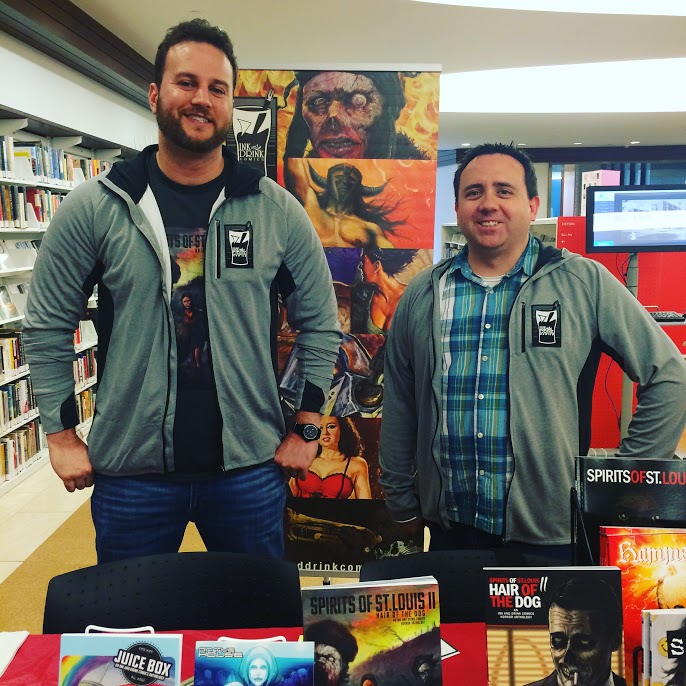
Jacob Watters
Staff Writer
For many, the phrase “comic books” brings to mind a list of very specific names and phrases: Jack Kirby, Stan Lee, Batman, Superman, the X-Men, “Pow” and “Ker-punch,” among them. It elicits superheroes and villains, clad in the colorful garb of their trade, bounding their way across Metropolis, Gotham, or even plain old New York City.
But, comic books are so much more than fancy costumes and figuring out how to save Mary Jane this week, and one member of the Lewis and Clark Community College family is trying to make that point known.
Associate Professor of English Steve Higgins teaches a selection of classes that focus on reading and literacy, as well as building and maintaining a level of command over the English language. In addition, he also teaches a class titled Comic Books as Literature. Higgins has taught at the collegiate level since 2001, and 2017 marks his 12th year teaching for L&C.
Higgins is also a member of a St. Louis based collective of comic creators known as Ink and Drink Comics. Every six months, the collective releases an anthology of themed stories, including some of his own creation, which Higgins co-edits and helps publish. Ink and Drink Comics newest book, Chaser, a short collection of crime-themed stories will debut at Wizard World St. Louis over the weekend of April 7.
When asked about how he arrived at the idea of teaching a course that focused on dissecting comics as a form of literature, Higgins replied that when he began teaching comic books were just not in use in mainstream academia. They were only used in a few fringe cases, although they were beginning to gain acceptance thanks to Alan Moore’s Watchmen and Neil Gaiman’s The Sandman.
“Some of the lesson plans I created during my education courses in college focused on books like Maus and the genre of the superhero,” Higgins said. “Then I read Understanding Comics by Scott McCloud, and it blew my mind. It made me think that I ought to teach not just a unit using comics as a text but an entire course on analyzing comics as you would any other form of literature.”
One of the many struggles that Higgins has faced throughout his career as he developed the curriculum for the class was getting students to realize that there are more to comic books than superheroes.
“Even with The Walking Dead being one of the most popular shows on TV, and it having its basis in comics, people still often equate the medium of comics with the genre of superheroes,” Higgins said. “So, I try to get my students to see a world in comics beyond spandex, basically.”
Students that take the class are exposed to many different styles of writing in comic form, from the familiar tales of caped crusaders, to gritty crime novels, epic tales of fantasy and science fiction, and even chilling horror stories.
“We end on realism, comics that reflect the realities of daily life, because it’s the genre students usually have the least experience with,” Higgins said. “That’s a bit ironic though, considering most comic strips from the newspaper, everything from Peanuts to Calvin and Hobbes, are funny little reflections on the minute details of daily life. But still, it’s not what students think of when they think ‘comics.’”
Those who are looking for an interesting class or are looking to expand their knowledge of comics beyond just superheros may want to give Higgin’s Comic Books as Literature class a try.
jacobmwatters@gmail.com



